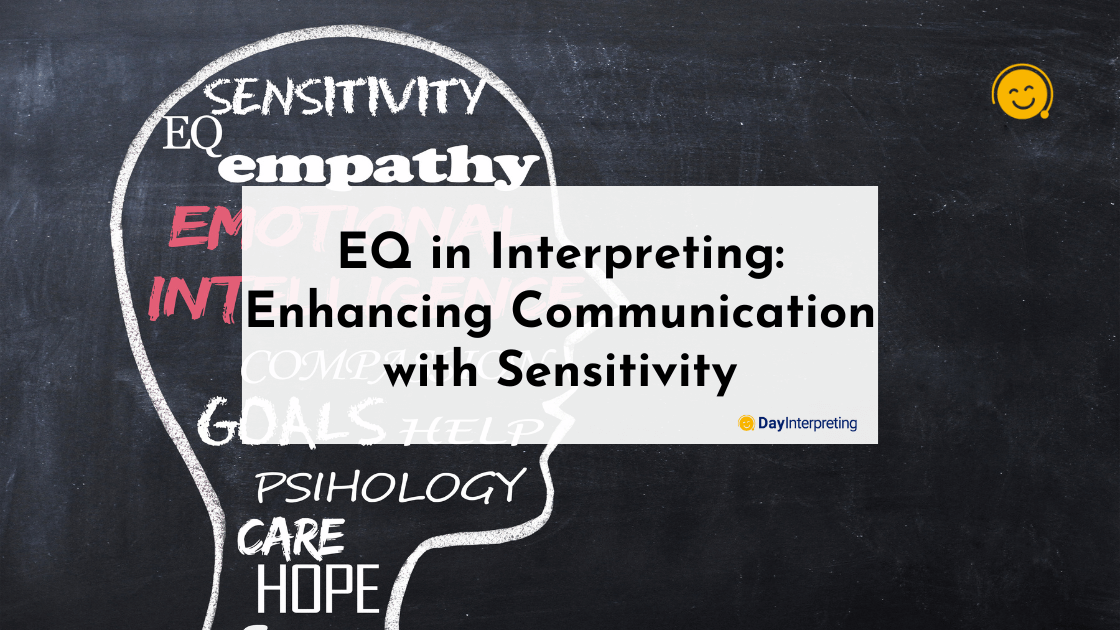Interpreters play a crucial role in facilitating communication between individuals who do not share a common language. However, their responsibilities extend beyond mere translation, as they must also interpret human behavior and emotions. This is where emotional intelligence becomes essential. But why is EQ in interpreting such an important aspect? And what does it take to be an emotionally intelligent interpreter? Let’s delve into the subject.
Understanding EQ in Interpreting
Emotional intelligence encompasses an individual’s ability to recognize and express their own emotions, as well as comprehend and influence the emotions of others. Emotional intelligence proves invaluable, particularly in high-pressure situations, where understanding emotions can be the key to success.
While many interpreting sessions, such as those in business environments, may seem unaffected by emotions, emotional intelligence can still significantly contribute to achieving desired outcomes for both parties involved.
The Significance of EQ in Interpreting
Handling Emotionally Sensitive Topics
Even when speaking the same language as a patient or client, broaching emotionally sensitive topics can be challenging. When multiple languages come into play, the stakes and the likelihood of miscommunication rise. Legal interpreters may need to assist trauma victims in conveying events to lawyers or judges, while medical interpreters must inform patients about life-threatening conditions. In these stressful situations, interpreters’ emotional intelligence is paramount.
Navigating Linguistic Nuances and Cultural Sensitivities
Although not all interpreting sessions revolve around emotionally charged subjects, emotional intelligence remains valuable in navigating linguistic nuances and cultural sensitivities. Interpreters must adapt to the formalities specific to different languages and settings to avoid unintentional offense. Here, emotional intelligence plays a vital role.
Utilizing Appropriate Body Language
Interpreting can take place in person, via video, or over the phone. When conducting in-person or video interpreting, interpreters need to exhibit active and engaged body language. This demonstrates their attentive listening, helping both parties comprehend each other effectively. Employing skills such as maintaining eye contact and displaying understanding, active listening, and empathy relies on interpreters’ emotional intelligence in assessing the conversation.
Establishing Client Comfort
Emotionally intelligent interpreters have the ability to build trusting relationships with their clients. When clients feel at ease with an interpreter, they are more inclined to share relevant information freely, promoting effective communication.
In Conclusion
Interpreting necessitates the utilization of emotional skills alongside linguistic and cultural competence. Interpreters must adapt to diverse environments, cultivate positive customer relations, and facilitate clear communication with individuals.
Emotional intelligence serves as a vital asset in the realm of interpreting, going beyond the mere act of language translation. Interpreters who possess emotional intelligence can navigate the complexities of emotionally sensitive topics, cultural nuances, and linguistic subtleties with finesse. By using the right body language and establishing rapport, they create an environment of trust and comfort, allowing for effective communication and understanding. At Day Interpreting, our team of professionals excels in emotional intelligence, ensuring that your interpreting needs are met with sensitivity and proficiency. Don’t let language barriers hinder your progress – reach out to us today, and let us bridge the gap, one conversation at a time!





0 Comments